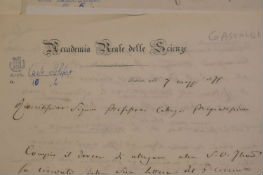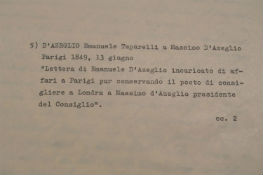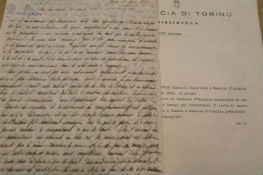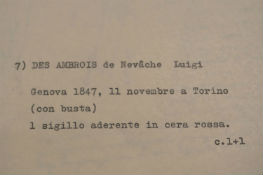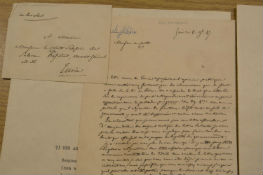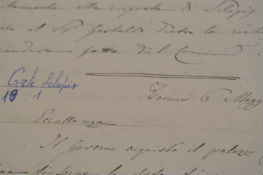Versione italiana English version Version française Versión en español
Federico Sclopis di Salerano (10th January 1798 - 8th March 1878) was an Italian jurist, magistrate and politician. Son of Count Alessandro, Mayor of Turin, and noble Gabriella Peyretti of Condove, he was a pupil of Carlo Boucheron and Amedeo Peyron. Graduated in Law at the University of Turin, he soon went, through the will of Prospero Balbo, to the Secretariat of the Interior. Magistrate from 1822, he became a member of the Senate of Piedmont on 28th February 1829. He was Advocate General at the Senate of Piedmont in the years 1844-1847 and then First Honorary President of the Court of Appeal of Piedmont. He had an important role in the drafting of the Albertine Statute, of which he drafted the preamble. On 16th March 1848 he was called into the Balbo Government to the Ministry of Justice and Justice and Ecclesiastical Affairs until 27th July of that year. In the same year he became a member of the Parliament of Sardinia for the IV College of Turin. After a year, on 10th July 1849, he was appointed a member of the Subalpine Senate.
In the Senate of the Kingdom of Italy he held the position of vice-president in 1861 and President from 25th May 1863 to 24th October 1864, resigning upon the transfer of the Chambers to the new capital, Florence. He was also provincial councillor and town councillor of Turin.
From 1870 to 1872 he was chairman of the arbitration between the United Kingdom and the United States called Alabama claims that led to the Treaty of Washington, concerning the position of the former during the Civil War, successfully leading the first attempt at arbitral resolution of international disputes. It was a role of great prestige for his person and for the Kingdom of Italy, born only a decade, which opened the legal practice now collected by international courts.
Sclopis also held the following positions and titles: Vice-Chairman of the Higher Commission of Statistics; member of the Higher Commission of Liquidation, of the Directorate of Opera Pia and Hospital San Luigi Gonzaga of Turin; Professor emeritus of the Faculty of Justice of the University of Turin; Minister of State; Vice-President of the Higher Council of Education, of the Permanent Board of the Higher Council of Education and of the Committee for University Education; President of the Diplomatic Dispute. He was a resident member, vice-president and president of the Academy of Sciences of Turin (1st May 1864 - 8th March 1878); member of the Academy of Sciences, Letters and Arts of Modena, the Royal Society of Naples and the Society of Agriculture, Industry and Commerce of Turin; honorary member of the Lombard Institute of Sciences and Letters of Milan; national member of the Accademia dei Lincei of Rome; national honorary member of the Deputation of Homeland History for the Sisters; resident member, vice-president and president of the Sub-Alpine Deputation for History and Homeland of Turin; president of the Deputation of Homeland History for the Ancient Provinces of Lombardy; member of the Deputation of Homeland History for the Provinces of Romagna; member of the Società ligure di storia patria, member of the Società accademica di Savoia, then Accademia di Savoia; honorary member of the Academy of Agriculture of Turin and member of the Sicilian Society of Homeland History.
The fragment of his archive preserved by the Library consists of a single bunch, almost exclusively formed by correspondence with 27 personalities of considerable political and intellectual level, and a nucleus of epistles of the same Sclopis. It was purchased together with the Baruffi archive, and for this reason, and also because it wasn't copious, it was originally inventoried at the bottom of the previous archive with the diction Carte Sclopis. There are no direct connections between the two personalities or links in the archival history of these papers to justify this choice. On the occasion of the digitization of the Library's archival inventories, it was decided to separate the inventories, while the two archives are already properly physically separated from the time of the first archiving.
- Archive inventory (pdf 708 KB)

